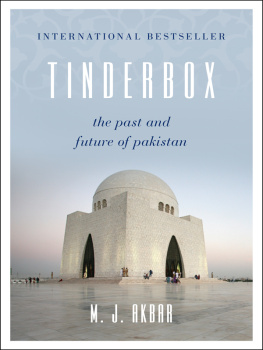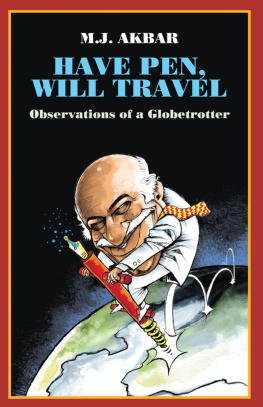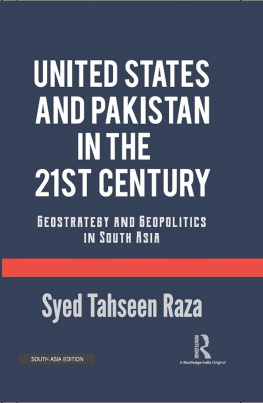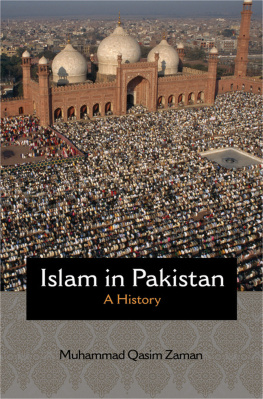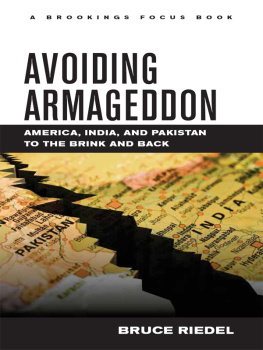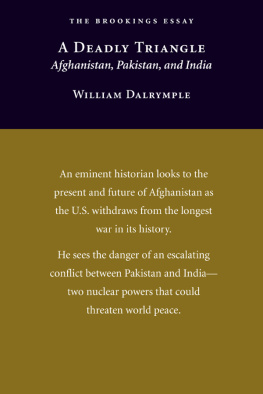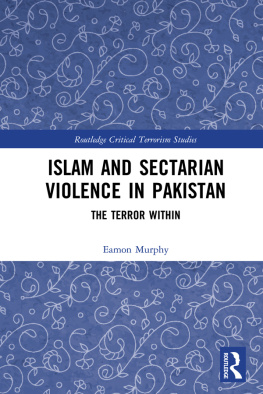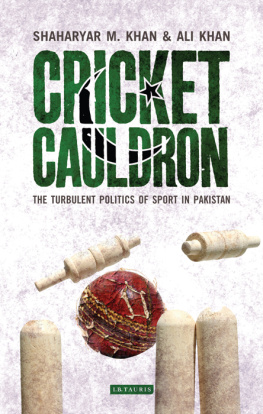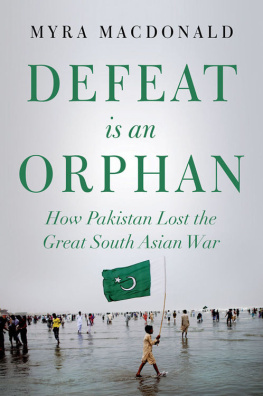I t was one of those suggestions that seem perfectly sensible during a spirited conversation at the home of a dear friend in Karachi. Bravado comes easily in the drawing room. A fellow guest, a former dignitary, offered to take me to the Binori mosque and madrasa, founded by Maulana Yusuf Binori soon after independence in 1947; it says something that he had not seen it either. We were not inspired by visions of a local Taj Mahal, but by the widely held belief that this was the sanctuary of Osama bin Laden during the fallow period between the Afghan jihad against the Soviet Union and his declaration of war upon America. In 1998, the then spiritual mentor of Binori, Mufti Nizamuddin Shamzai, had issued a fatwa saying that killing Americans was justified. A little later, Lashkar-e-Tayyiba, which became an international outcast after it organized the Mumbai attacks on 26 November 2008, issued a similar decree. The Taliban in Afghanistan honoured any visitor from Binori as a state guest.
The ride was uneventful, the mosque large rather than imposing. We mounted steps that opened into a spacious, rectangular courtyard surrounded by rooms. A few students loitered around, for it was neither time for study nor prayer, their dress indistinguishable from any Islamic seminary on the subcontinent: white pyjamas ending two inches above the ankle, white kurta, white cap taut over the scalp. As I bent to unlace my shoes, I dismissed a slight tremor of unease, unwilling to accept that I was afraid. It was impossible, however, not to sense that we were on the threshold of a different world, where a different law and a separate order prevailed. The Karachi police would probably have guffawed at the thought that they needed to do something about an Indian held hostage in the mosque. Fools deserve their fate. Then, without a word, my companion signalled, with a jerk of the head, that it was time to end this stupidity. We returned to the car at a brisk pace, just short of a panic run.
The time for rumination would come later. But surely there was an obvious, immediate question that demanded an answer. Muslims of British India had opted for a separate homeland in 1947, destroying the possibility of a secular India in which Hindus and Muslims would coexist, because they believed that they would be physically safe, and their religion secure, in a new nation called Pakistan. Instead, within six decades, Pakistan had become one of the most violent nations on earth, not because Hindus were killing Muslims but because Muslims were killing Muslims.
Nations are not born across a breakfast table. Their period of gestation is surely one of the more fascinating chapters in the study of history. The indisputable stature of Mohammad Ali Jinnah, a master of the endgame, has led to a notion that Pakistan emerged out of a resolution passed in March 1940 at the Muslim League session in Lahore. The reality is more complicated. Pakistan emerged out of a fear of the future and pride in the past, but this fear began as a mood of anguish set in among the Muslim elite during the long decline of the Mughal Empire in the eighteenth century. The embryo had a long and turbulent existence, particularly during the generations when it remained shapeless.
This book is a history of an idea as it weaved and bobbed its way through dramatic events with rare resilience, sometimes disappearing from sight, but always resurrected either by the will of proponents or the mistakes of opponents. It began hesitantly, in the shadow of the age of decline, in the 1750s, when the collapse of the Mughal Empire and the consequent disintegration of what is called Muslim rule in India could no longer be disguised by explanations, theories or hope of revival.
Pakistan is a successor state to the Mughal Empire, the culmination of a journey that began as a search for Muslim space in a post-Muslim dispensation, nurtured by a dread that became a conviction: that a demographic minority would not be able to protect either itself or its faith unless it established cultural and political distance from an overwhelming majority Hindu presence. Muslims, who had lived in India for five centuries with a superiority complex, suddenly lurched into the consuming doubt of an inferiority complex which became self-perpetuating with every challenge that came up during different phases of turbulent colonial rule.
The infirmities of this idea were never recognized because they could only become evident in practice. An existentialist question was completely ignored: was Islam so weak that it could not survive as a minority presence? There was nothing in its glittering past to suggest this, but those who raised the question, like the brilliant scholarpolitician Maulana Abul Kalam Azad, were dismissed, ironically, as traitors to Islam.
The first phase consists of the years between 1739 and 1757. In 1739, a Persian marauderking, Nadir Shah, entered Delhi as Mughal Emperor Muhammad Shahs guest. Two days later, Nadir Shah, using an untenable excuse, ordered a massacre which did not discriminate between Muslims and Hindus. An estimated 20,000 were killed, women raped and the capital plundered of private and public wealth. After fifty-eight days of terror, Nadir Shah departed with a hoard of invaluable jewels, gold and coins, including the Kohinoor diamond and Shah Jehans Peacock Throne. The Mughal Empire, a superpower three decades before, never recovered from this humiliation; it had failed in its basic duty, the safety of its subjects.
Shah Waliullah, the premier Sunni theologian and intellectual of his age, read many meanings in the catastrophe. The security that Muslims had taken for granted was over. The disintegrating empire was being replaced by powerful regional dynasties that were largely Hindu. The most important Muslim principality, Awadh, was in the control of Shias, a deviant sect that could not be trusted with the preservation of Islam, and who were in his eyes even worse than the infidel. Nadir Shah, who broke the bent back of Mughals, was a Shia.
Shah Waliullah proposed a theory of distance and the protection of Islamic purity as his prescription for a community that was threatened by the cultural power and military might of the infidel. While he thanked Allah for keeping the blood in his own veins pure and Arab, he recognized that the majority of Indian Muslims were converts from Hinduism; there was enormous cultural overlap in their habits and behaviour. He feared a lapse into Hindu practices among Indian Muslims in the absence of the religious leadership that had been preserved by political power. Islam could survive in India, he argued, only if Muslims maintained physical, ideological and emotional distance from Hindus. He urged Muslims to live so far from Hindus that they would not be able to see the smoke from their kitchens.
Shah Waliullahs seminary would play a vital part in the shaping of the north Indian Muslim mind in the nineteenth century, when British rule moved from a southern enclave and eastern corner to dominate the whole of the subcontinent. British rule originates in a minor but epoch-changing battle in 1757, in a village called Plassey, which ended Mughal rule in the richest trading province of the country, Bengal. The students of Shah Waliullahs seminary, however, were not so easily defeated. One of them, Sayyid Ahmad Barelvi, inspired the long jihad which began in 1825 and continued long after his death in 1831, on the battlefield, at Balakote (today, a principal centre of the Pakistan Taliban).
Mistrust of Hindus, fundamental to the theory of distance, became the catechism of Muslim politics when it sought to find its place in the emerging polity of British rule in the early twentieth century. The very first demand made by Muslim notables, when Indian representation was proposed in the legislature, was unique: that Muslims should be elected only by fellow Muslims. This was the separate electorates scheme which the British happily endorsed into law. A perceptive young man, who would later be honoured as the father of Pakistan, recognized the implications immediately, even as he dissociated himself from the demand. Jinnah said, as early as in the first decade of the twentieth century, that separate electorates would lead to the destruction of Indian unity; and so they did.

